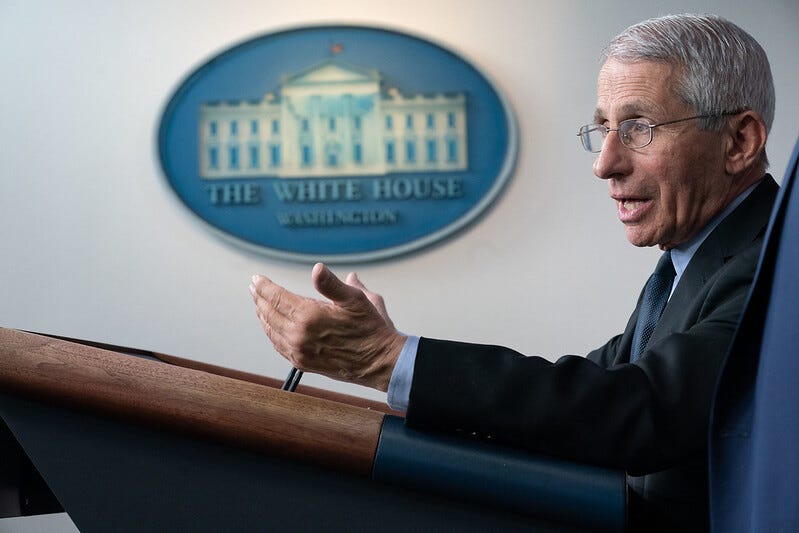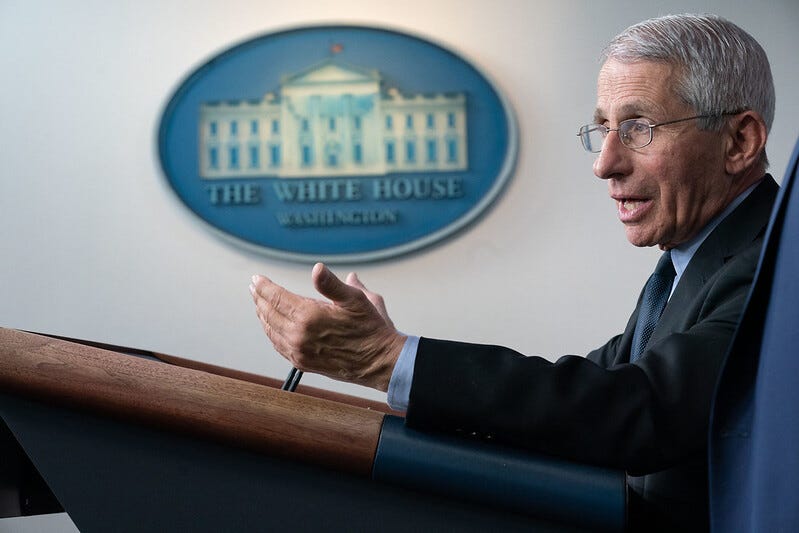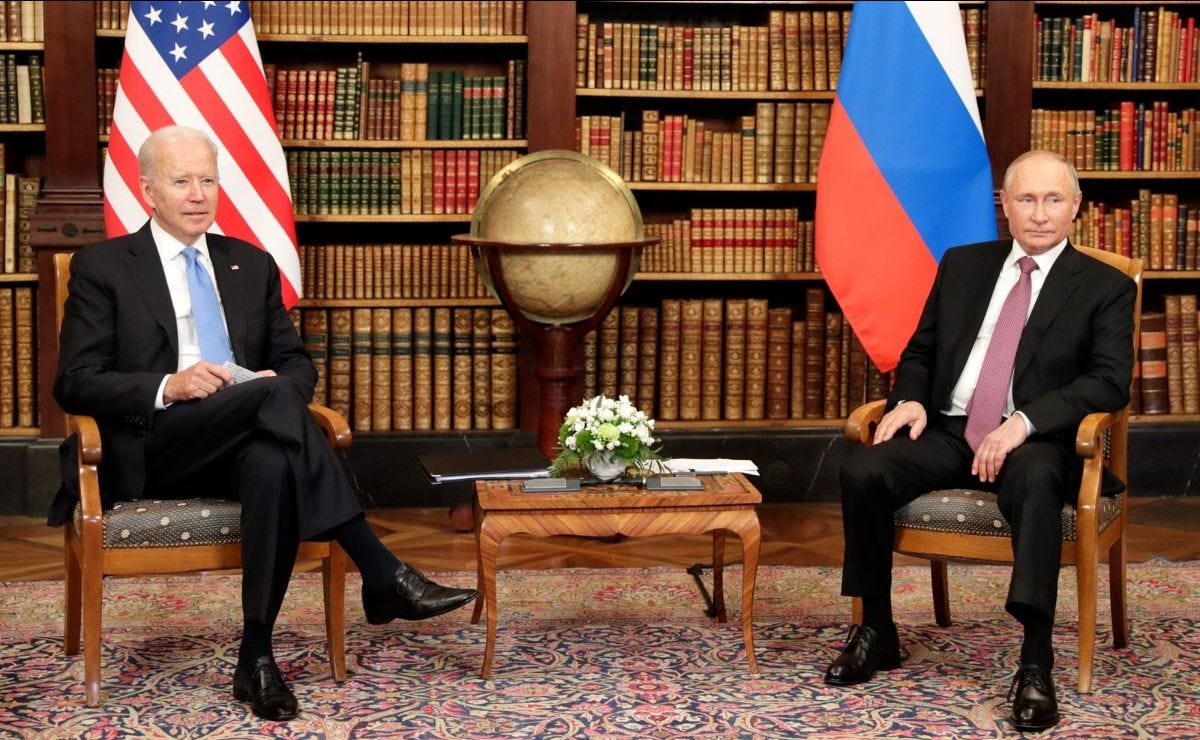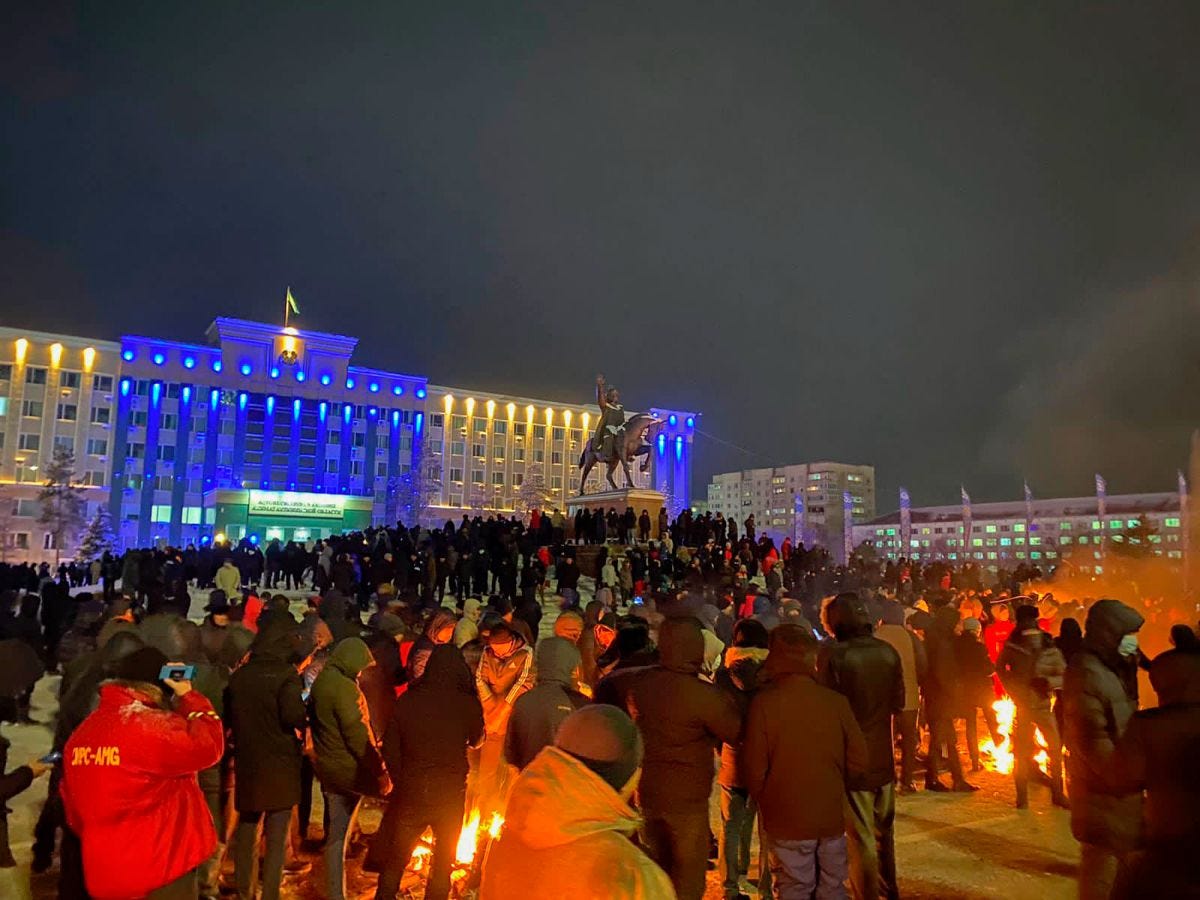Wake Up To Politics - January 12, 2022
Wake Up To Politics: “An epidemic of confusion”
by Gabe Fleisher
Good morning! It’s Wednesday, January 12, 2022. Election Day 2022 is 300 days away. Election Day 2024 is 1,028 days away.
“An epidemic of confusion”
A foursome of top public health officials testifying before a Senate committee on Tuesday found themselves facing pointed questions on the Biden administration’s Covid-19 response — from lawmakers on both sides of the aisle.
“I’m not questioning the science, but I am questioning your communication strategies,” Sen. Richard Burr (R-NC), the ranking member of the panel, said to the officials during the hearing. “It’s no wonder the American people are confused.”
The sentiment was bipartisan: “I have heard from so many people who find the latest CDC isolation and quarantine guidance confusing and hard to interpret,” Sen. Patty Murray (D-WA), the committee chair, added.
It’s all part of a nationwide “epidemic of confusion,” as the Washington Post termed it in a front-page story this morning. Instead of polarization over the virus, the Post article explained: “A strange unity of confusion is emerging, a common inability to decipher conflicting advice and clashing guidelines coming from government, science, health, media and other institutions.”
“On seemingly every front in the battle against the coronavirus, the messages are muddled: Test or don’t test? Which test? When? Isolate or not? For five days? Ten? Go to school or not? See friends and resume normal life, or hunker down again — and if so, for how long, to what end?”
Repeatedly shifting guidance from the CDC on many of those questions has hardly helped, nor has the peculiar new variant of the virus, which is spreading faster than ever — more than 760,000 new cases were reported in the U.S. on Tuesday, a new record — but also causing milder disease.

Does the Biden administration plan to change its Covid strategy to counter the confusion? It’s unclear. Per Politico, “a growing number of Democrats are urging the Biden White House to reset its Covid battle plan” to offer more straightforward guidance and increase availability of testing, but the administration has yet to bite.
A group of health experts who advised Biden during the presidential transition published a slate of opinion pieces last week urging the administration to enact a sweeping new strategy: one that would focus on living indefinitely with the virus as a “new normal,” rather than attempting to eliminate it.
There are some signs that changes are afoot to clarify guidance, and to offer Americans supplies. The CDC is reportedly considering updating its mask guidance to recommend people wear N95 or KN95 masks, and the administration is also mulling whether to send those masks to all Americans.
Biden’s team also announced a plan this morning to provide an additional 10 million tests per month to schools and students, in hopes of keeping classrooms open amid a rash of testing shortages and ensuing closures.
The hearing on Tuesday also seemed to showcase something of a messaging shift. “Most people are going to get Covid,” acting FDA commissioner Janet Woodcock acknowledged during the session, while Dr. Anthony Fauci said that the Omicrion variant would “ultimately find just about everybody.” Those statements pointed to a possible pivot towards that “new normal” approach, where infections are seen as more inevitable than preventable.
President Biden will deliver a speech on Covid tomorrow; it will be interesting to watch if he adopts such rhetoric, and whether he offers new guidance on isolation or masking.
Speaking to the confusion — and frustration — many Americans feel is one of Biden’s chief challenges at the dawn of the new year. According to one piece in The Atlantic, more and more Americans (including Biden’s ideological allies) are feeling “vaxxed and done,” tired of the pandemic-era restrictions and ready to move on. (Another piece in the same magazine this week was titled “Two Years Is Long Enough,” so at least we know how writers at The Atlantic are feeling.)
Personally, to close the loop on something I wrote about last month, I’ll be headed back to my college campus today. What awaits me when I get there? Three weeks of virtual classes, a shuttered dining hall (“grab-and-go” dining only!), a closed gym, and a requirement to wear an N95 (or another high-grade mask) at all times indoors. (Some colleges have gone further: Yale, for example, has instructed students not to dine at local restaurants.)
How long will such restrictions — and the current uptick in cases and hospitalizations — last? It’s anyone’s guess. There is a glimmer of hope in the latest modeling, which suggests the Omicron wave could crest within a week. But who knows what’s in store for us after that: As we’ve learned in the last two years, and especially in the last two weeks, “Covid” and “confusing” can often go hand in hand.
What else you should know
→ Inflation. “U.S. inflation closed out 2021 at its highest level since 1982 as robust consumer demand exacerbated pandemic-related supply shortages.” Wall Street Journal
→ Voting rights. “President Joe Biden painted a dire picture for the nation’s future elections during a major speech on voting rights while in Atlanta on Tuesday, expressing his frustration at Republicans who blocked voting rights legislation and calling on the US Senate to change its filibuster rules to accommodate the bills’ passage.” CNN
→ Special election. “Health care CEO Sheila Cherfilus-McCormick was elected to fill the seat of late Democratic Florida U.S. Rep. Alcee Hastings on Tuesday, boosting the Democrats’ slim majority in the House.” Associated Press
→ Climate change. “ Temperatures in the United States last year set more all-time heat and cold records than any other year since 1994, according to a New York Times analysis of Global Historical Climatology Network data.” New York Times

Policy Briefing: Global
Every Wednesday, Wake Up To Politics contributor Miles Hession offers a briefing on the week’s top international news:
Talks between Russia and the U.S. hit an impasse as both sides refused concessions on the future of NATO expansion. The negotiations were convened amid Russia’s historic troop buildup along the Ukrainian border. While there was another similar troop buildup in the spring of last year, this military escalation has raised more concern due to strategic intelligence indicating an invasion of Ukraine is on the table. While publicly Russia has affirmed it will not invade, President Vladimir Putin has been notoriously unpredictable in similar negotiations and sent mixed signals about probable next steps.
The sticking point of the negotiations revolved around NATO and expansion of the bloc. Russia demanded that the U.S. halts all eastward expansion and to give assurances that Ukraine will never become a member of NATO. The U.S. viewed this as a non-starter, and argued these assurances would undermine the core principle of NATO, the open-door policy. Talks will continue today and tomorrow with European officials as NATO countries hope to use the threat of economic sanctions to extract concessions from Russia.
At least eight were killed by a suspected suicide car-bombing in Somalia’s capital Mogadishu as the country is embroiled in a political crisis. The tragic killings have created further instability amid a power struggle between feuding Prime Minister Mohamed Hussein Roble and President Mohamed Abdullahi Mohamed. Conflict emerged between the two after Mohamed suspended Roble over suspected corruption and intensified after conflict broke out when the parliament controversially extended Mohamed’s time in office.
After a long stalemate and delayed elections, and under international pressure, plans for the postponed elections were cemented. While the government both battles terrorist group al-Shabaab and reports of an impending famine, the elections are a crucial test of stability.
Putin announced plans for a troop withdrawal in Kazakhstan following deadly protests last week. Around 2,000 troops entered the Central Asian country as a peacekeeping force from the NATO-rival security bloc Collective Security Treaty Organisation (CSTO). Protests initially emerged after a popular government subsidy for gas was axed, nearly doubling its price, but they quickly evolved into wider anti-government demonstrations.
When security forces arrived, President of Kazakhstan Kassym-Jomart Tokayev issued a “shoot to kill” order and preliminary information puts the death toll at 165 with 10,000 detained. With order returning slowly, Putin has decried foreign intervention in the region as the source of the unrest, and promised the CSTO would prevent any “color revolutions” from taking place in its sphere of influence.
More global headlines, via Miles:
Prime Minister Boris Johnson of the United Kingdom has apologized for a party at his residence during lockdown as the political blowback intensifies.
Aung San Suu Kyi, the deposed leader of Myanmar, received another prison sentence in a “courtroom circus.”
The prime minister of Ethiopia said he would free prominent opposition figures in a bid for “unity” days before launching a deadly drone strike into Tigray.
Daybook
All times Eastern.
→ President Joe Biden will receive his daily intelligence briefing at 10:20 a.m. Then, at 12:45 p.m., he and First Lady Jill Biden will attend the funeral of Gen. Raymond Odierno, who died in October at age 67. A four-star general, Odierno led U.S. forces in Iraq from 2008 to 2010 and served as chief of staff of the Army from 2011 to 2015.
The president will deliver remarks at the funeral, which will be held at Joint Base Myer-Henderson Hall in Fort Myer, Virginia.
→ Vice President Kamala Harris and Second Gentleman Doug Emhoff will attend a congressional tribute ceremony at the Capitol for the late Sen. Harry Reid (D-NV) at 11 a.m. Reid, who died in December at age 82, served in the Senate from 1987 to 2017 and as Senate Majority Leader from 2007 to 2015.
Reid will lie in state at the Capitol throughout the day, the 34th individual to be accorded the honor in U.S. history. House Speaker Nancy Pelosi (D-CA) and Senate Majority Leader Chuck Schumer (D-NY) will both deliver remarks at the 11 a.m. tribute ceremony.
→ White House Press Secretary Jen Psaki will hold a press briefing at 3 p.m.
→ U.S. public health officials will hold a press briefing at 11 a.m. on the Covid-19 response. The briefers will include Dr. Anthony Fauci, the White House chief medical adviser; Dr. Rochelle Walensky, the CDC director; and Jeff Zients, the White House Covid-19 response coordinator.
→ The Senate will convene at 12:30 p.m. and resume consideration of the nomination of Amitabha Bose to be Administrator of the Federal Railroad Administration. The chamber will vote at 3:30 p.m. on Bose’s confirmation, followed by a vote to confirm Gabriel Sanchez as a U.S. Circuit Judge for the Ninth Circuit.
→ The House will convene at 12 p.m. The chamber is scheduled to debate and then vote on H.R. 1836, the Guard and Reserve GI Bill Parity Act of 2021.
→ The Supreme Court will hear oral arguments at 10 a.m. in Boechler, P.C. v. Commissioner of Internal Revenue, in which a North Dakota law firm is challenging a $19,250 penalty it received from the IRS after missing an income tax deadline by one day.






